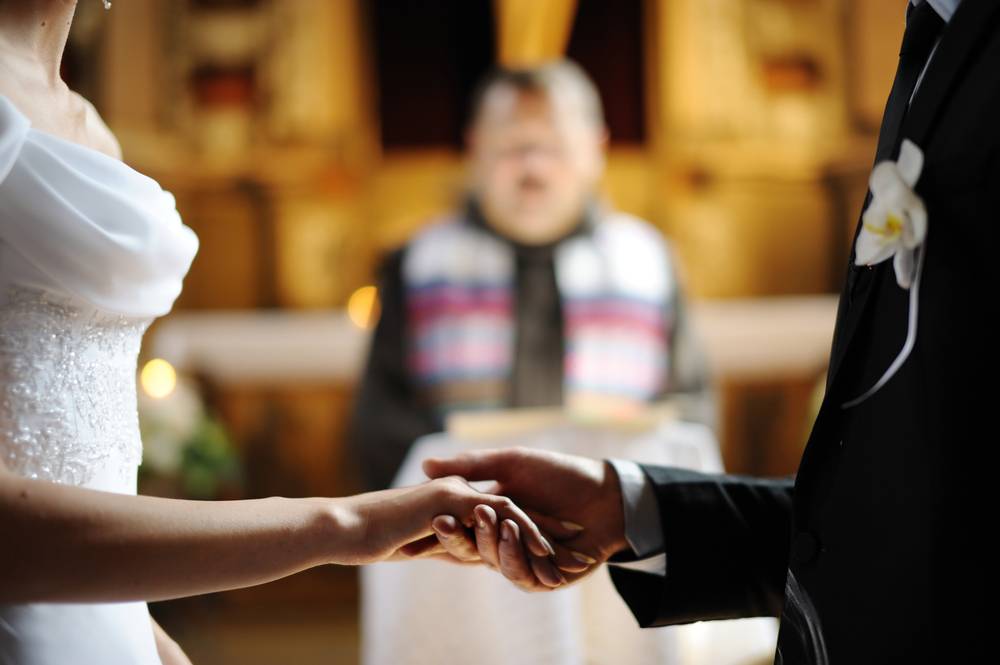Latest News
Salient Features of the Indian Christian Marriage Act

Introduction:
Marriage generally is the formal union of one person to another as partners for life.’Marriage, which includes two people possessing different interests, desires, and needs, is a special association given shape by social rules and laws and significantly affects individuals’. The laws relating to marriage vary based on the community that the couples belong. The legislation respecting the solemnization of Indian Christian Marriage is unified by this Act. On 18th July 1872, it was enacted. Except for Cochin, Manipur, and Jammu & Kashmir, this rule applies to the entire of India. 88 Sections in 8 Parts and 4 Schedules became part of the Christian Marriage Act 1872.
Requirements for a valid Christian Marriage:
The following are needed to be met to establish a valid marriage, according to The Indian Christian Marriage Act of 1872. According to section 60 of the act.
The age of the bridegroom must not be less than 21 years, and the age of the bride must not be less than 18 years.
The two parties to the marriage must give the wedding voluntary consent which can not be received by misrepresenting evidence or by compulsion or by excessive influence.
At the time of marriage, no party can have a living partner.
The marriage must take place in the presence of an official who is allowed to issue a marriage certificate and at least two credible witnesses.
Individuals authorised to solemnise Christian marriages:
According to the Indian Christian Marriage Act, certain individuals are appointed for the solemnisation of marriages under this act. It is defined under section 5 of the Act.
By a person who has received the episcopal ordination and is authorised, following the rules, rites, ceremonies, and customs of the Church of which he is a minister, to celebrate a marriage.
In compliance with the laws, rituals, ceremonies, and customs of the Church of Scotland, a person who is a clergyman belonging to the Church of Scotland is permitted to solemnise a marriage.
By a person who is a Minister of Religion who is allowed under the Act to solemnise marriage with a warrant.
By a person who is allowed under the Act to issue marriage certificates to Christians in India.
Time and Place of Marriage:
The Indian Christian Marriage Act clearly specifies where and at which time Christian marriages should take place. Between the timeframe of six in the morning to seven in the evening, the time for a Christian marriage ritual must be scheduled. A church or a chapel is the location where Christian marriage has to be performed. Some special considerations and requests are granted that gives the time and place for the marriage ceremony to be flexible.
Formalities and Procedures:
Section 12-26 of the act talks about the process involved in the solemnisation of Christian marriages
Notice of Marriage - Section 12 of the Act includes written notice from any side,
In the manner provided for in the First Schedule of the Act, by the Minister concerned, The parties would like the union to be solemnised. The note must include a name, Name, occupation, and residence of all parties, the period of time during which the party involved was concerned They have lived in their place of residence and the church/private dwelling where marriage has to be solemnised.
The marriage registrar is allowed by section 16 of the Act to include the notice in any
A noticeable position in his office. The Senior Manage Registrar, on the other hand, is expected to forward the notice for such affixation to each marriage registrar in the same district.
Declaration - Section 18 of the Act allows each party to the marriage to appear before the Minister directly and to announce that there is no impediment to the marriage of parentage or affinity and that required consents have been received, mandated by statute,
Issue of certificate - Section 17 of the Act notes that any party to the marriage has been given to the Minister without warning and after either party has been given to the Minister.
The Minister shall, having made the declaration required pursuant to section 18, give the parties a certificate. A certificate can be issued only after the expiry of four days after receipt of the notification, provided that its issuance is not prevented and that the parties have shown to the satisfaction of the Minister that there is no legal impediment to the issuance of the certificate.
Section 20 requires any individuals allowed to agree pursuant to section 19 to bar the issuing of certificates pursuant to section 1 by supplying the Minister with a written notice. Section 21 specifies that if a notification pursuant to section 20 has been received, the Minister shall suggest that If he/she is assured upon inspection that the person preventing the marriage is not allowed to do so, he/she does not grant a certificate. Solemnization of marriage - Section 25 of the Act specifies that, after the issuance of a certificate under section 17, the Minister is entitled, in the presence of two witnesses, to solemnise the marriage between the parties in accordance with the form or ceremony which the Minister might find fit to adopt. Section 26 of the Act specifies that if the marriage is not solemnised within 2 months of the date on which the certificate referred to in section 17 is given, the certificate is invalid and the parties are not entitled to have the marriage solemnised without having a new certificate issued under section 17.



































































































